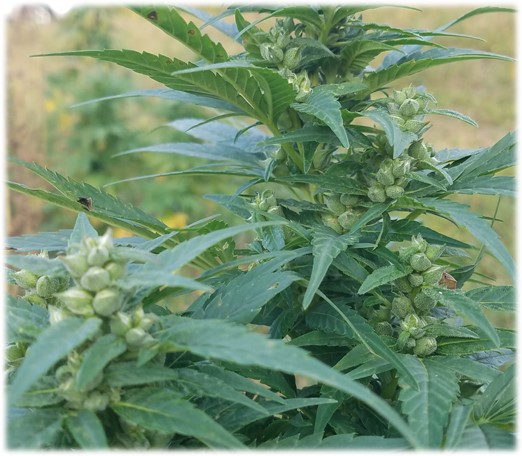By Michael DiTomasso, VT Agency of Agriculture, Food & Markets
Hemp seed oil and hemp concentrate are both derived from the hemp plant and used in the manufacture of products sold to the consuming public. In Vermont these products and associated byproducts can be used in the manufacture of food and feed, botanical supplements, and cosmetic products, however, are created with different methods and from different parts of the harvested hemp plant. Understanding how both products are made, as well as the difference in their chemical make-up, is important to understand regulation in Vermont.
Hemp seed is and oilseed, generally, from a hemp grain variety. Making hemp seed oil is similar to the mechanical extraction process to make any seed oil, such as sunflower oil. Seed oils are commonly made with a cold-press oilseed machine that compresses the seeds under extreme pressure to express the oil contained in the seed. The byproduct of this process is hemp seed cake, which has potential to be legally used as a commercial feed for laying hens. Hemp seed oil contains essential fatty acids and omega 3’s that have important health benefits, and generally contains no more than trace amounts of cannabinoids, such as CBD and THC. Hemp seed oil is considered “Generally Recognized as Safe” (GRAS) by the U.S. Food & Drug Administration. The use of hemp seed oil in the manufacture of products in Vermont does not require a registration as a processor.
Hemp concentrate, also sometimes an oil consistency depending on extraction method, is made from harvested hemp floral material/ inflorescence, or biomass, but not the harvested seed. A person can use mechanical or solvent based extraction methods to create a concentrate, and primarily consists of cannabinoids at the end of the extraction process. The permitted solvents for primary extraction are ethanol, C02, or lipids (coconut, olive or a seed oil!). It is also possible to extract cannabinoids using solventless extraction methods. Manufacturing products using hemp concentrate, a process intermediary, requires a registration with the Vermont Hemp Program as a processor. This is for several reasons, including regulating processors to make sure that the products produced meet the acceptable potency level and are tested for contaminants that can be present in hemp floral material or are byproducts of the extraction process.
Hemp product manufacturers should be aware of the difference between hemp seed oil and hemp concentrate when determining whether or not a registration as a processor is required. A person must register to cultivate hemp for any type of end use in Vermont. Questions regarding registration requirements can be directed to Michael DiTomasso by email michael.ditomasso@vermont.gov or by phone 802.505.3726.

